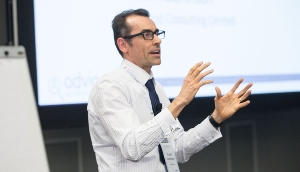Good news, four million lives saved
Good news, since 1994 the global rate of suicide has dropped 38%. That saved four million lives – more than ten times the number that died in combat since then.
Monday, November 26th 2018, 10:43AM

Russell Hutchinson
Imagine that – four million lives saved by freedom, better packaging, and good social work.
Neither part of the story – not the success in the great fall in suicide rates, nor the failure of the large number that still happen, tends to feature anything like as much as war, riot, and all the other bad things you see on the news.
More on that later – but first, the good news:
Big contributions to the fall in the suicide rate have come from:
- Freedom, especially freedom for women. Early in the 20th century the freedom for women to divorce was instrumental in reducing suicide rates. In recent years, rates of suicide for women in China and India have been dropping dramatically for similar reasons. There has been a 90% drop in the suicide rate for young women in China as improvements in the lot of women are made – for example.
- Reducing poverty and sickness – long-term sickness is a big contributor to suicide rates. Reducing poverty and improving access to health care has helped to reduce suicide rates amongst the elderly across the wealthier world parts of the world. It should be no surprise to us that if people are happier and healthier this reduces suicide rates. The challenge is how to do it. Merely spending more money isn’t the only answer, improving diet, exercise, and knowledge are all largely communication problems. So good social work and public health campaigns have a great role to play.
- Making the world safer helps a great deal more than you might expect. It turns out that if one attempt fails, rather than try again, people often reconsider. From The Economist “In Britain, for instance, a law was passed in 1998 to limit the number of aspirin and paracetamol that could be sold in a single pack. In the following year, aspirin suicides were down by 46% and paracetamol ones by 22%. Blister packs help, too, because pills must be pushed out tediously one by one, allowing a would-be suicide time to reconsider”
New Zealand’s rate of suicide is high for a country with wealth and so many advantages. Although lower than it was in the late eighties and nineties, it is roughly double the rate in the UK.
The insurance industry has long had an involvement in campaigns to prevent avoidable claims: it is good for us and for our clients.
At some point in your planning for next year you may ponder how you can contribute to your community and create the kinds of connection that only cause-related marketing can buy.
This and other problems are just waiting for people like us to help solve them.
References:
The Economist, www.economist.com – articles ‘staying alive’ and ‘defeating despair’
Our World in Data, https://ourworldindata.org/suicide
| « Can you comply with the new Code? | How big a problem is insurance fraud? » |
Special Offers
Comments from our readers
No comments yet
Sign In to add your comment
| Printable version | Email to a friend |


